What Is Mushroom Seasoning?
Mushroom seasoning, often called mushroom powder or mushroom salt, is a concentrated flavor enhancer made primarily from dried mushrooms ground into a fine powder. This culinary powerhouse has gained tremendous popularity in recent years as chefs and home cooks discover its ability to add depth, complexity, and umami to virtually any savory dish.
This versatile seasoning typically contains dried mushrooms as its primary ingredient, though commercial versions may include other components such as:
- Salt (in varying quantities)
- Spices (like garlic powder, onion powder, or herbs)
- Vegetable powders
- Natural flavor enhancers
- Anti-caking agents (in some commercial products)
The magic of mushroom seasoning lies in its concentrated umami flavor profile. Umami, recognized as the fifth basic taste alongside sweet, sour, salty, and bitter, creates a satisfying savory sensation that enhances other flavors in a dish. Mushrooms naturally contain high levels of glutamates and nucleotides—compounds responsible for umami—making them perfect candidates for creating a powerful flavor enhancer.

The History and Cultural Significance of Mushroom Seasoning
Ancient Origins of Mushroom Preservation
The practice of drying mushrooms dates back thousands of years, with evidence of mushroom preservation found in ancient civilizations worldwide. Early humans discovered that drying mushrooms not only extended their shelf life but also concentrated their flavors.
- In China, dried mushrooms have been used in cooking for over 3,000 years
- European cultures developed techniques for preserving wild mushrooms through drying
- Indigenous peoples across North America incorporated dried mushrooms into their winter food supplies
- Japanese cuisine elevated dried shiitake to an art form, creating a foundation for umami flavoring
Modern Development of Mushroom Seasoning
While dried mushrooms have ancient roots, the concept of mushroom seasoning as we know it today is relatively modern. The development of commercial mushroom seasonings gained momentum in the mid-20th century, particularly in East Asian countries where umami flavors were already deeply appreciated.
Several factors contributed to its rising popularity:
- The scientific recognition of umami as the fifth taste in the early 1900s
- Increased interest in natural flavor enhancers as alternatives to MSG
- The growth of vegetarian and vegan diets seeking plant-based flavor boosters
- Growing appreciation for global cuisines that traditionally incorporate mushroom flavors
Types of Mushroom Seasoning
Commercial Varieties
The marketplace offers numerous commercial mushroom seasonings, each with distinct characteristics:
Mushroom Salt Blends
These products combine finely ground mushrooms with salt in various ratios. They serve as dual-purpose seasonings, adding both saltiness and umami to dishes. Popular varieties include:
- Shiitake salt (made primarily with dried shiitake mushrooms)
- Porcini salt (featuring the robust flavor of porcini mushrooms)
- Mixed mushroom salt (containing various mushroom species for complex flavor)
- Truffle salt (incorporating truffle pieces or flavor for luxury applications)
Pure Mushroom Powders
Pure mushroom powders contain only dried, ground mushrooms without additional ingredients. These offer maximum flexibility for cooks who want to control salt levels separately or create custom seasoning blends:
- Shiitake powder (earthy, smoky, with intense umami)
- Porcini powder (robust, nutty flavor profile)
- Portobello powder (milder mushroom flavor, good everyday option)
- Chanterelle powder (delicate, fruity notes)
- Lion's Mane powder (subtle seafood-like quality)
- Maitake powder (spicy, woodsy characteristics)
Mushroom Seasoning Blends
These comprehensive products incorporate mushroom powder with complementary herbs, spices, and sometimes salt. They're designed to be all-purpose flavor enhancers for specific cuisines or applications:
- Asian-style mushroom seasonings (often containing shiitake, white pepper, garlic)
- Italian mushroom blends (typically featuring porcini with Mediterranean herbs)
- All-purpose mushroom seasonings (balanced blends for everyday cooking)
- Specialty blends (targeting specific applications like grilling, soups, or rice dishes)
Homemade Varieties
Many culinary enthusiasts prefer making mushroom seasoning at home, allowing complete control over ingredients and customization options:
- Single-mushroom powders (made from one mushroom variety)
- Custom mushroom blends (combining different mushrooms for unique flavor profiles)
- Seasoned mushroom salts (homemade mushroom powder mixed with specialty salts)
- Herbed mushroom seasonings (incorporating complementary herbs and spices)
Nutritional Benefits of Mushroom Seasoning
Vitamin and Mineral Content
Mushroom seasoning contains concentrated nutrients found in fresh mushrooms, making it a nutritional powerhouse even when used in small amounts:
- B vitamins (particularly B2, B3, B5, and B9)
- Selenium (important antioxidant mineral)
- Copper (essential for red blood cell formation)
- Potassium (crucial for heart and muscle function)
- Zinc (supports immune function)
- Iron (vital for oxygen transport in the body)
The exact nutritional profile depends on the mushroom varieties used, with different species offering varying nutrient concentrations.
Functional Benefits
Beyond basic nutrition, mushroom seasoning contains bioactive compounds with potential health benefits:
- Beta-glucans (immune-modulating polysaccharides)
- Ergothioneine (powerful antioxidant found almost exclusively in mushrooms)
- Polyphenols (plant compounds with antioxidant properties)
- Triterpenes (compounds being studied for various health effects)
Low-Sodium Cooking Alternative
For those monitoring sodium intake, pure mushroom powder provides an excellent way to enhance flavor without adding salt. The natural glutamates in mushrooms create a satisfying taste that reduces the need for salt in many recipes.

Culinary Applications of Mushroom Seasoning
Everyday Cooking Uses
Mushroom seasoning shines in countless everyday applications:
Soups and Stews
A small amount of mushroom powder transforms ordinary soups and stews, adding:
- Deeper flavor base
- Rich color
- Satisfying mouthfeel
- Complexity without additional ingredients
Just ½-1 teaspoon per quart of soup can dramatically enhance the final result.
Rice and Grain Dishes
Mushroom seasoning elevates simple grains with minimal effort:
- Adds dimension to plain rice
- Enhances risotto even without fresh mushrooms
- Transforms ordinary pilaf into a special dish
- Creates depth in grain bowls and salads
Vegetable Preparations
Vegetables benefit tremendously from mushroom seasoning:
- Roasted vegetables gain meaty satisfaction
- Steamed vegetables develop complexity
- Vegetable stir-fries achieve restaurant-quality flavor
- Vegetable soups taste more developed and complete
Protein Preparations
From plant-based to animal proteins, mushroom seasoning enhances:
- Tofu and tempeh preparations
- Bean dishes and legume stews
- Meat rubs and marinades
- Seafood seasonings
- Egg dishes like omelets and frittatas
Gourmet and Specialty Applications
Beyond everyday cooking, mushroom seasoning plays important roles in more specialized culinary contexts:
Plant-Based Cooking
For vegetarian and vegan cooking, mushroom seasoning provides:
- Umami depth often missed in plant-based dishes
- Meaty satisfaction without animal products
- Complexity in plant-based broths and stocks
- Dimension in dairy-free sauces
Sodium Reduction Strategies
Culinary professionals use mushroom seasoning to:
- Create low-sodium recipes with satisfying flavor
- Reduce salt in institutional settings (hospitals, schools)
- Develop commercially viable reduced-sodium products
- Enhance flavor perception even with less salt
Artisanal Food Products
Artisanal food producers incorporate mushroom seasoning into:
- Specialty spice blends
- Gourmet snack foods
- Craft condiments and sauces
- Premium soup bases and bouillons
Making Mushroom Seasoning at Home
Basic Mushroom Powder Recipe
Creating basic mushroom powder at home requires minimal ingredients and equipment:
Ingredients:
- 4 ounces dried mushrooms (shiitake, porcini, or mixed varieties)
Equipment:
- Food processor, spice grinder, or high-powered blender
- Airtight storage container
- Optional: fine-mesh sieve for removing larger pieces
Instructions:
- Ensure dried mushrooms are completely dry (no moisture remaining)
- Break mushrooms into smaller pieces by hand
- Process in small batches until a fine powder forms
- Sift if desired for the smoothest texture
- Store in an airtight container away from heat and light
This basic powder keeps for 6-12 months when properly stored.
Advanced Mushroom Seasoning Blends
For more complex flavor profiles, try these enhanced versions:
Umami-Boosted Mushroom Salt
Ingredients:
- 1 cup mushroom powder (from recipe above)
- ¼ cup high-quality sea salt
- 1 tablespoon nutritional yeast
- 1 teaspoon dried seaweed flakes (optional)
Instructions:
- Combine all ingredients in a food processor
- Pulse briefly to integrate (avoid over-processing)
- Store in an airtight container
- Use as an all-purpose seasoning for maximum umami impact
Herb-Infused Mushroom Blend
Ingredients:
- 1 cup mushroom powder
- 2 tablespoons dried thyme
- 2 tablespoons dried rosemary
- 1 tablespoon dried sage
- 1 tablespoon garlic powder
- 1 tablespoon onion powder
- 1 teaspoon black pepper
Instructions:
- Grind any whole herbs to a fine powder
- Mix all ingredients thoroughly
- Store in an airtight container
- Use for European-inspired dishes
Asian-Inspired Mushroom Seasoning
Ingredients:
- 1 cup shiitake mushroom powder
- 2 tablespoons white pepper
- 1 tablespoon ginger powder
- 1 tablespoon garlic powder
- 1 teaspoon five-spice powder
- 1 tablespoon dried orange peel (optional)
Instructions:
- Combine all ingredients thoroughly
- Store in an airtight container
- Use in stir-fries, noodle dishes, and Asian-inspired soups
Tips for Maximum Flavor
To get the most from homemade mushroom seasoning:
- Use a variety of mushroom types for complex flavor
- Include at least some shiitake mushrooms for maximum umami
- Ensure mushrooms are completely dry before grinding to prevent clumping
- Consider toasting dried mushrooms lightly before grinding for enhanced flavor
- Store in small containers to minimize air exposure
- Add complementary ingredients that enhance mushrooms' natural properties
Selecting Quality Commercial Mushroom Seasoning
What to Look For
When purchasing pre-made mushroom seasoning, consider these quality indicators:
Ingredient List
The best products feature:
- Mushrooms as the first or primary ingredient
- Specific mushroom varieties listed (not just "mushroom powder")
- Minimal additives and preservatives
- No artificial flavors or MSG (unless specifically desired)
- Complementary ingredients that make culinary sense
Production Methods
Quality manufacturers will often highlight:
- Slow-drying processes that preserve flavor
- Low-temperature grinding to maintain volatile compounds
- Sustainable sourcing practices
- Organic or wild-harvested mushrooms when possible
Packaging
Optimal packaging protects the product:
- Airtight containers that prevent moisture absorption
- Opaque packaging that blocks light
- Resealable options to maintain freshness
- Clear best-by dating
Top Commercial Brands
Several manufacturers have established reputations for exceptional mushroom seasonings:
- Sugimoto (Japanese brand known for premium shiitake powder)
- Far Shores Traders (specializing in wild mushroom blends)
- Mycological (offering organic certified mushroom powders)
- The Spice House (creating chef-quality mushroom salt blends)
- Flavor Forager (developing innovative mushroom seasoning combinations)

Creative Ways to Use Mushroom Seasoning
Beyond Traditional Applications
Mushroom seasoning can transform unexpected dishes:
Baking Applications
- Savory bread enhancement (particularly sourdough)
- Umami-rich crackers and crisps
- Savory pastry fillings
- Cheese straws and savory cookies
Beverage Innovations
- Savory cocktail rim blends
- Rich broth-based drinks
- Complex hot chocolate variations
- Savory smoothie enhancement
Dessert Experiments
- Chocolate desserts with umami depth
- Caramel with enhanced complexity
- Ice cream base enrichment
- Puddings with subtle savory notes
Pairing with Other Ingredients
Mushroom seasoning creates magic when paired with:
Complementary Spices
- Black pepper (enhances mushroom's earthy notes)
- Thyme (classic herbaceous pairing)
- Garlic (amplifies savory qualities)
- Smoked paprika (adds dimension to mushroom's earthiness)
Supporting Ingredients
- Butter (carries and distributes mushroom flavor)
- Cream (softens and extends mushroom notes)
- Aged cheeses (complementary umami creation)
- Miso (umami synergy)
- Soy sauce (flavor amplification)
Storage and Shelf Life
Proper Storage Techniques
To maintain quality, store mushroom seasoning:
- In airtight containers
- Away from direct light
- In cool, dry locations
- Away from strong odors (which can be absorbed)
Shelf Life Expectations
Properly stored mushroom seasoning typically lasts:
- Commercial products: According to manufacturer's dating (usually 1-2 years)
- Homemade pure mushroom powder: 6-12 months
- Homemade blends with herbs/spices: 3-6 months for best flavor
- Refrigerated products: Extended life but potential moisture issues
Signs of degradation include:
- Clumping (indicates moisture absorption)
- Fading aroma (suggests volatile compound loss)
- Color changes (potential oxidation)
- Off odors (possible contamination)
Conclusion: The Versatility of Mushroom Seasoning
Mushroom seasoning represents one of the most versatile additions to any culinary arsenal. Its ability to enhance practically any savory dish—from the simplest scrambled eggs to the most complex gourmet creation—makes it an essential tool for home cooks and professional chefs alike.
The growing interest in plant-based cooking, coupled with increased awareness of umami as a critical flavor component, ensures that mushroom seasoning will continue gaining popularity in kitchens worldwide. Whether purchased from specialty suppliers or crafted at home, this powerful flavor enhancer offers an accessible way to transform ordinary cooking into extraordinary culinary experiences.
By understanding the different varieties, applications, and preparation methods of mushroom seasoning, you can harness its remarkable properties to elevate your cooking. Experiment with different mushroom varieties, complementary ingredients, and application techniques to discover the full potential of this natural flavor powerhouse.
Whether you're seeking to reduce sodium, enhance plant-based dishes, or simply add more depth to everyday cooking, mushroom seasoning provides a natural, versatile solution that connects modern culinary innovation with ancient wisdom about the remarkable properties of fungi.

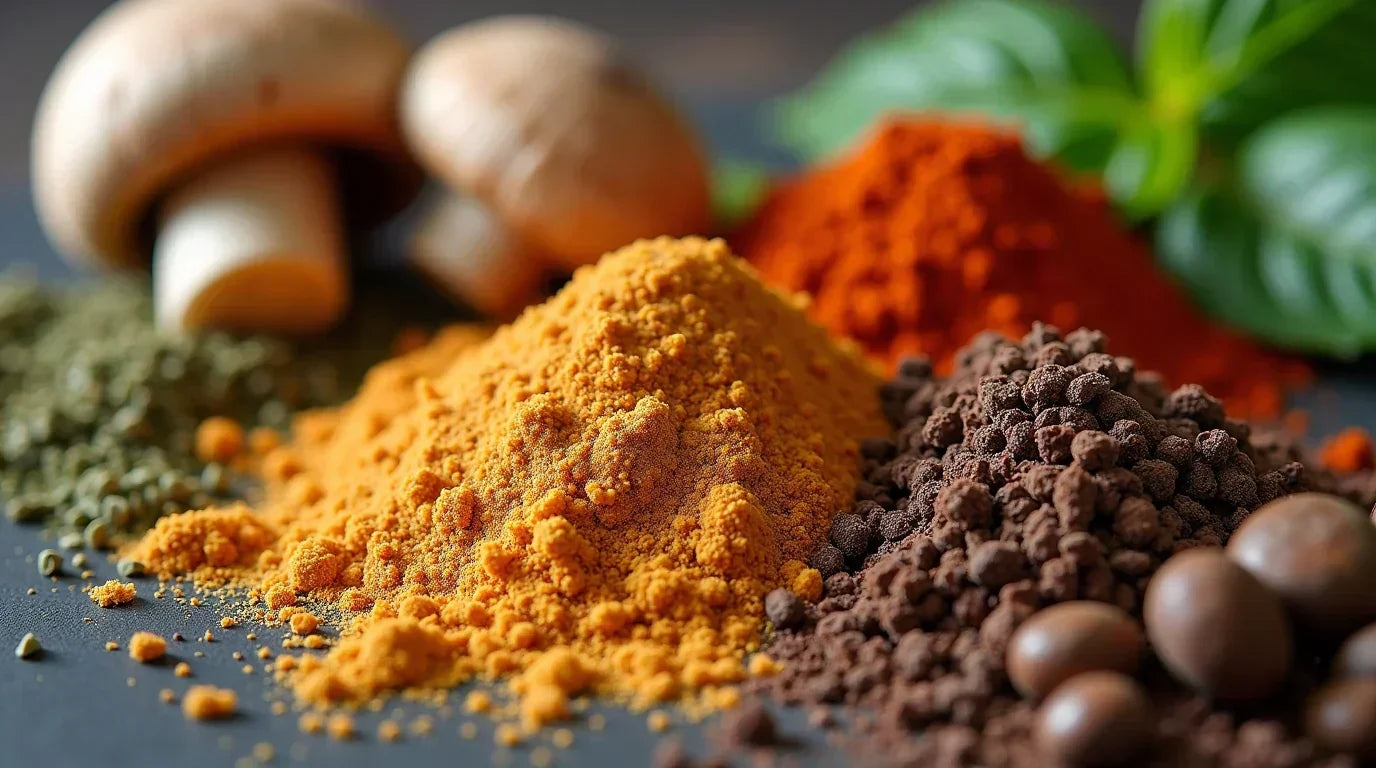
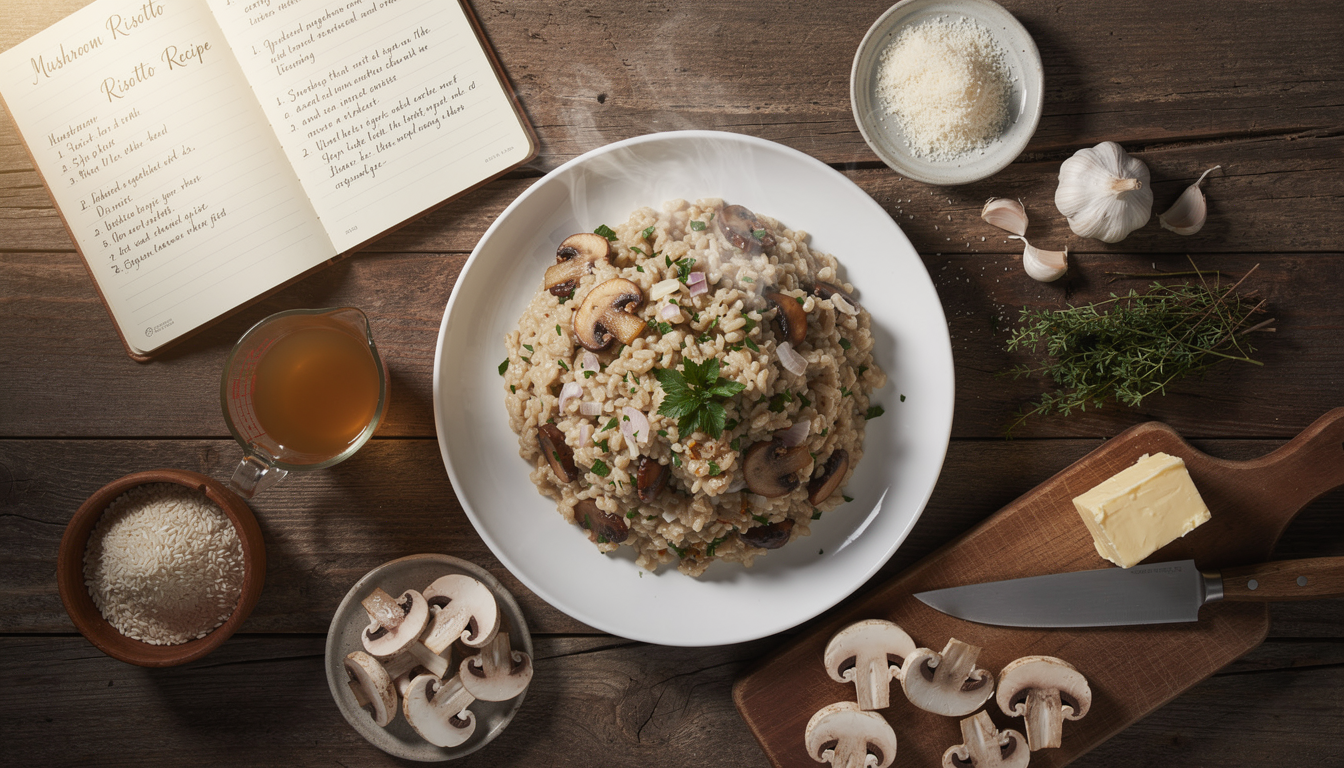
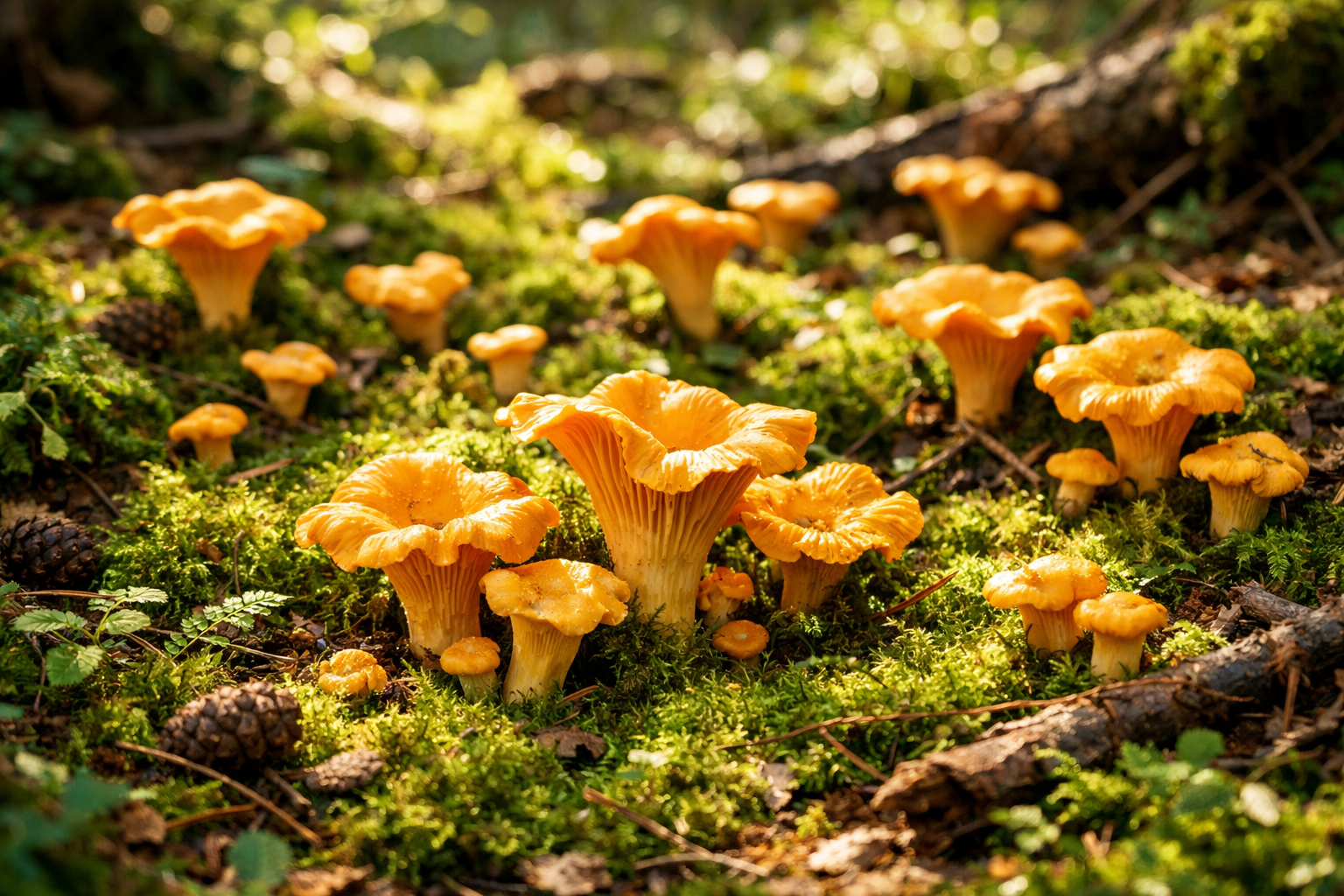
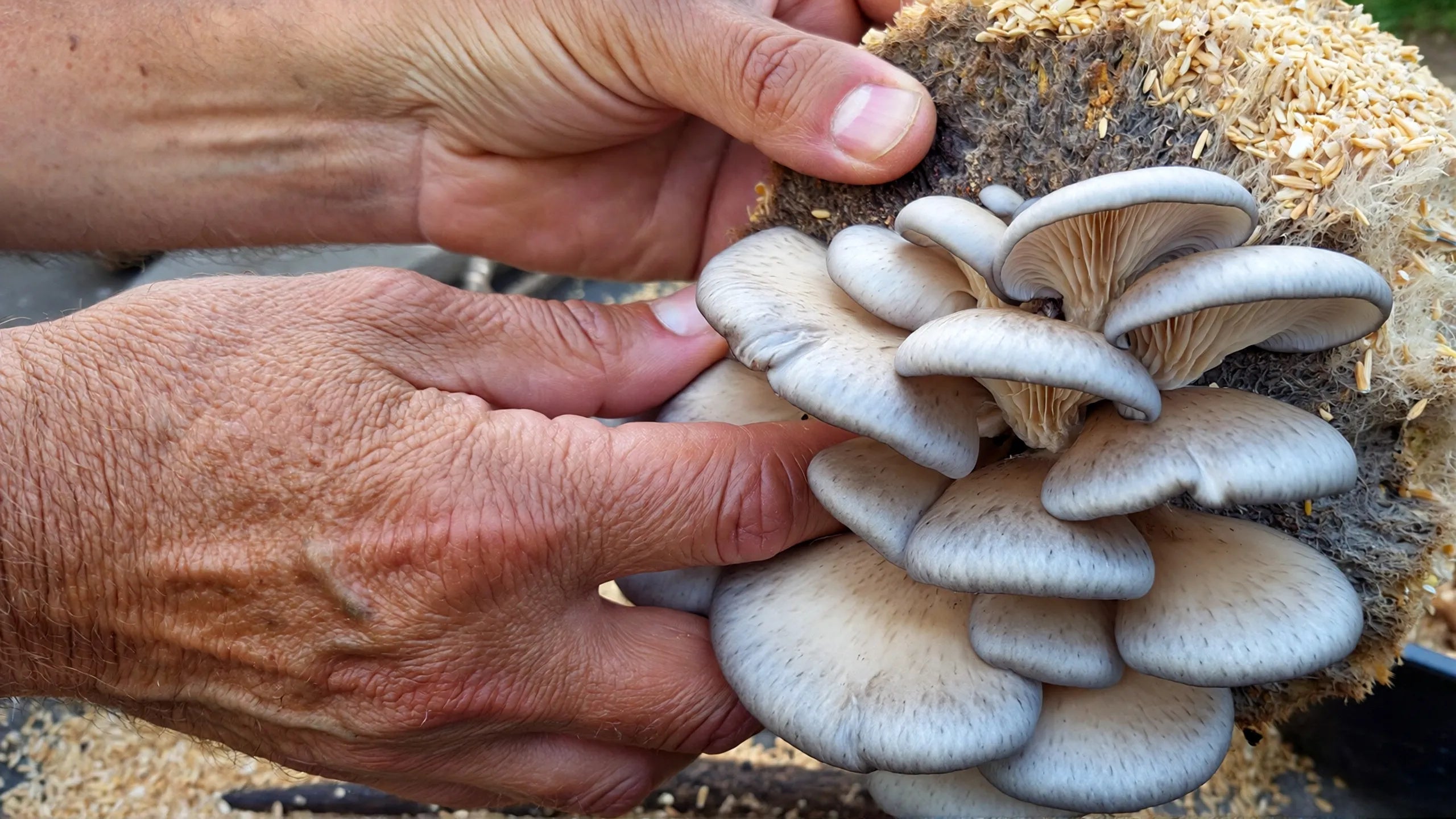
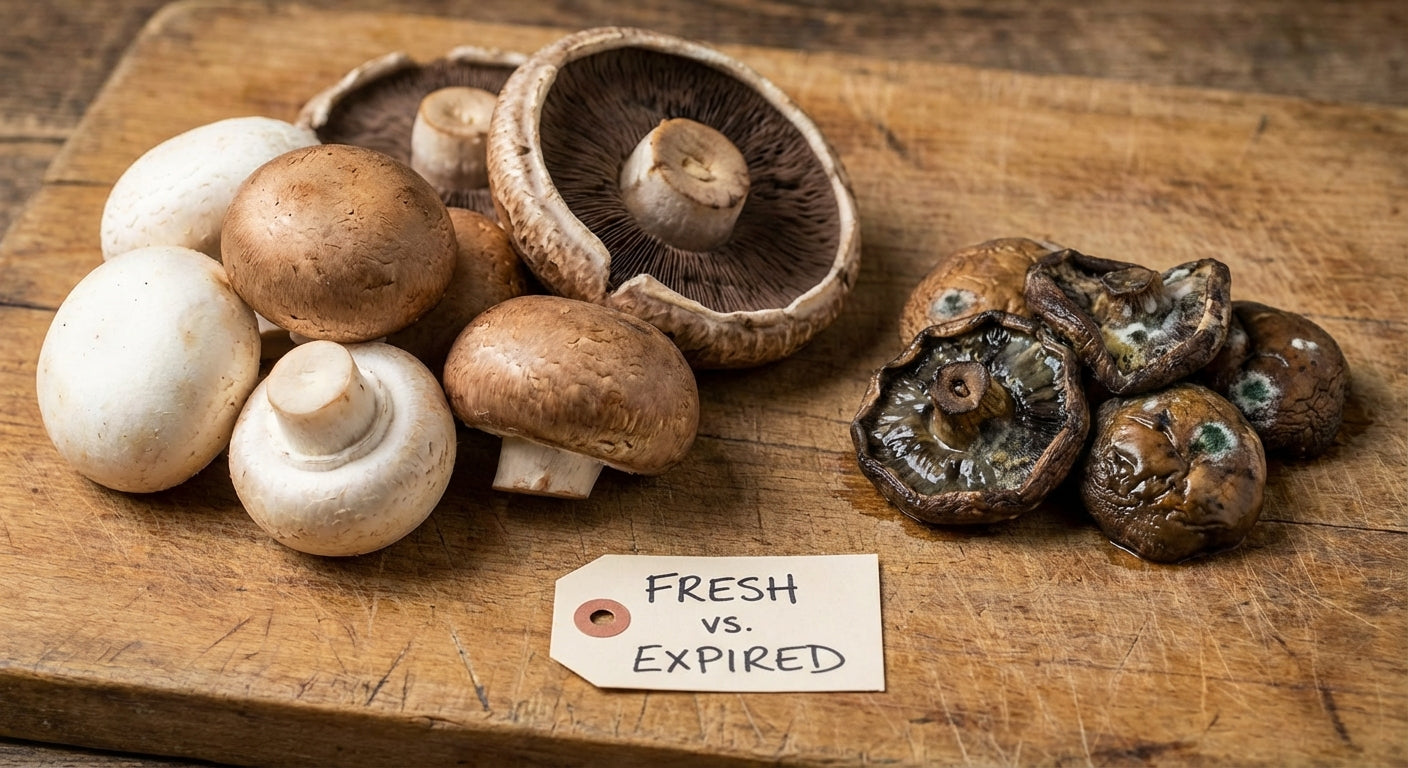
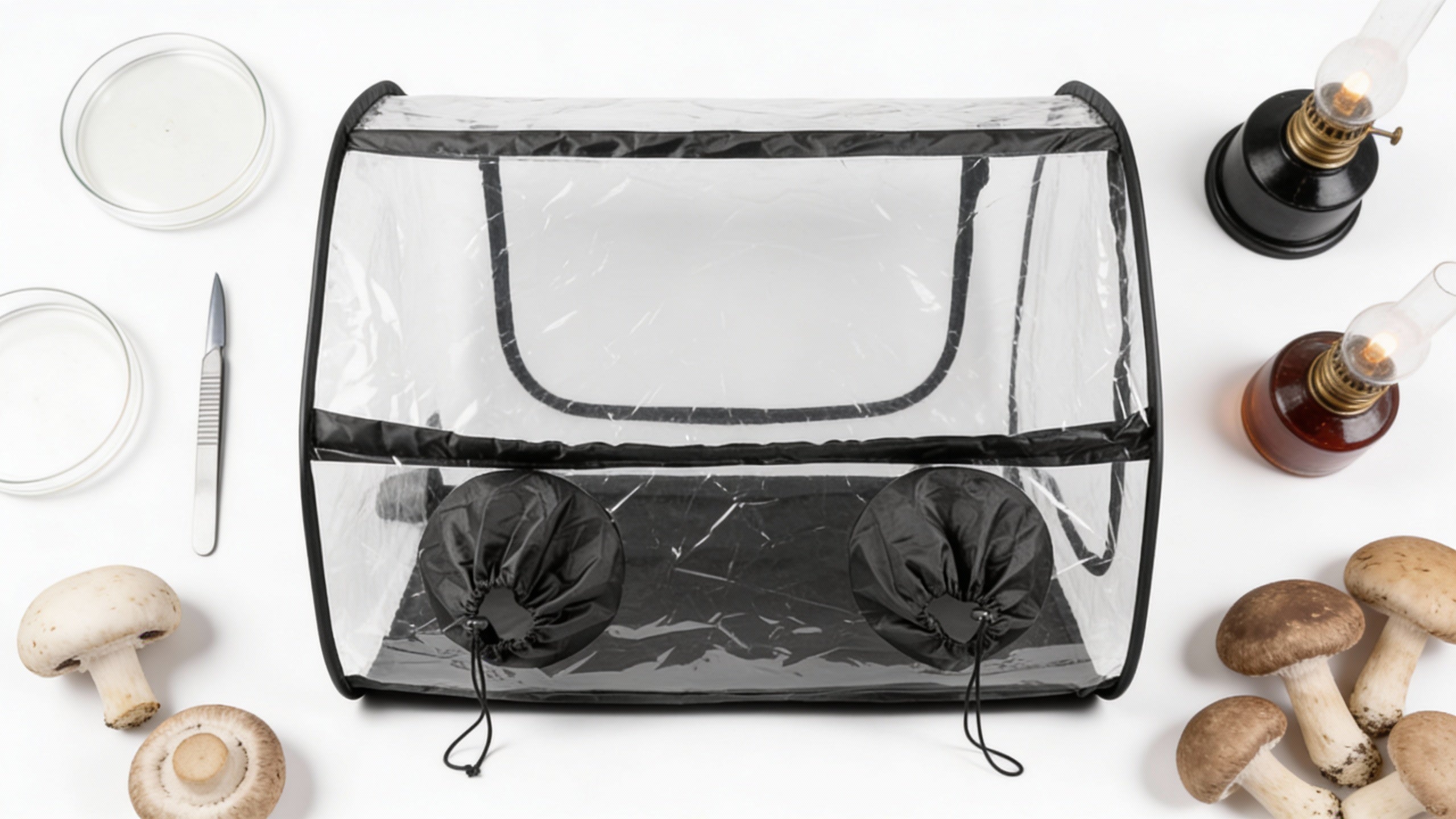
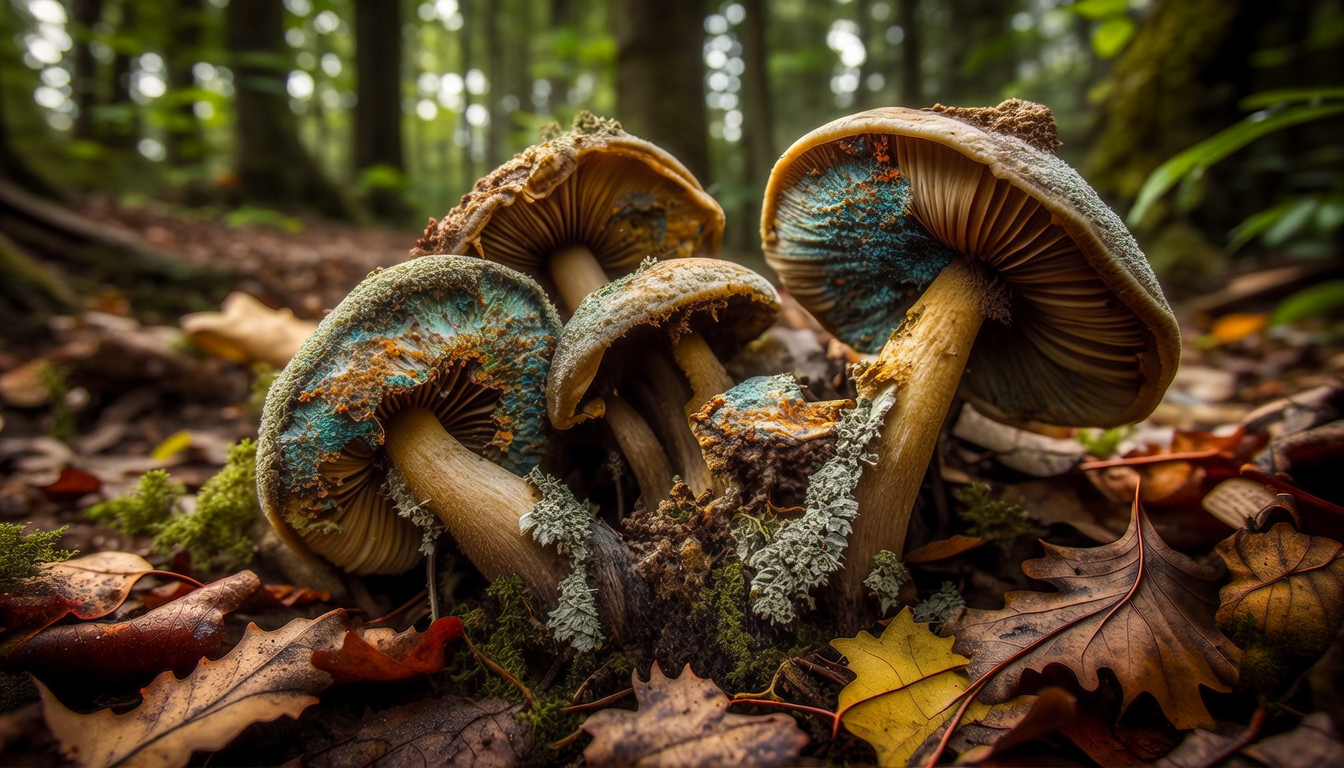
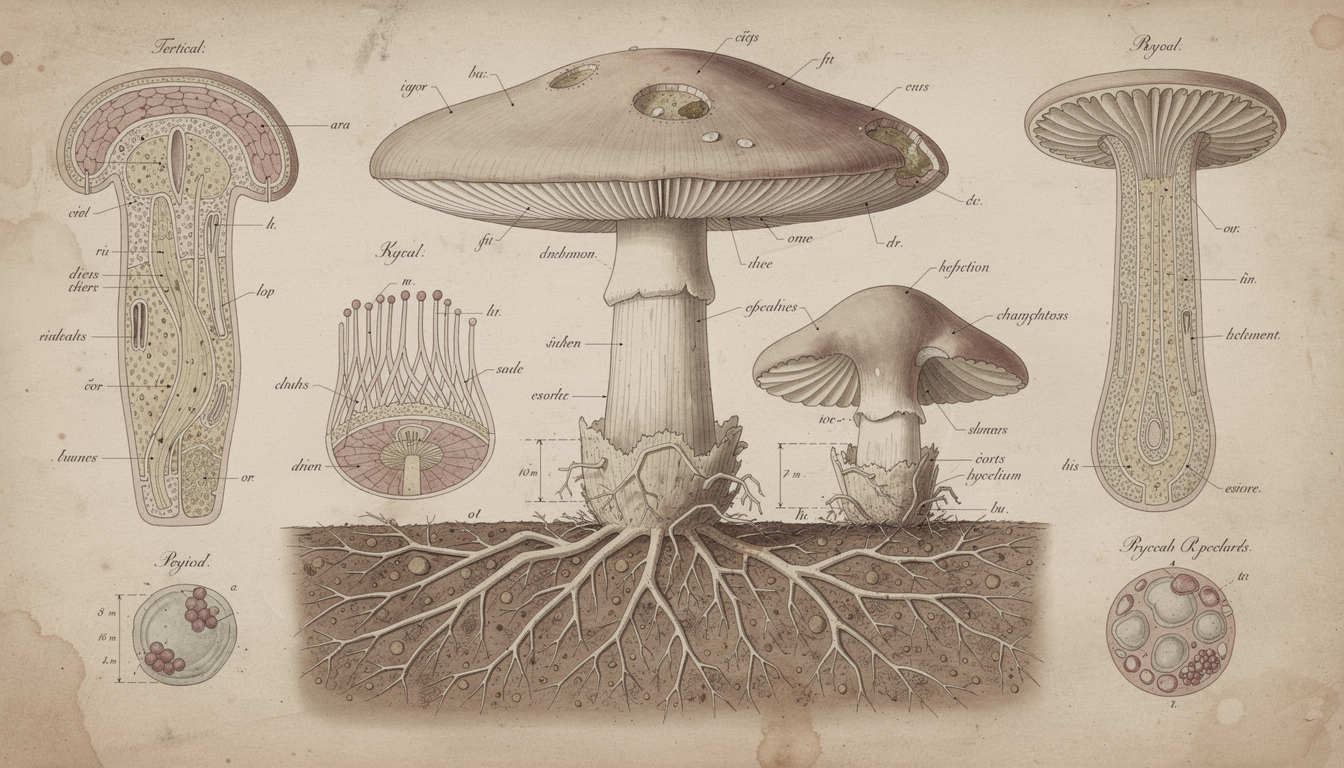
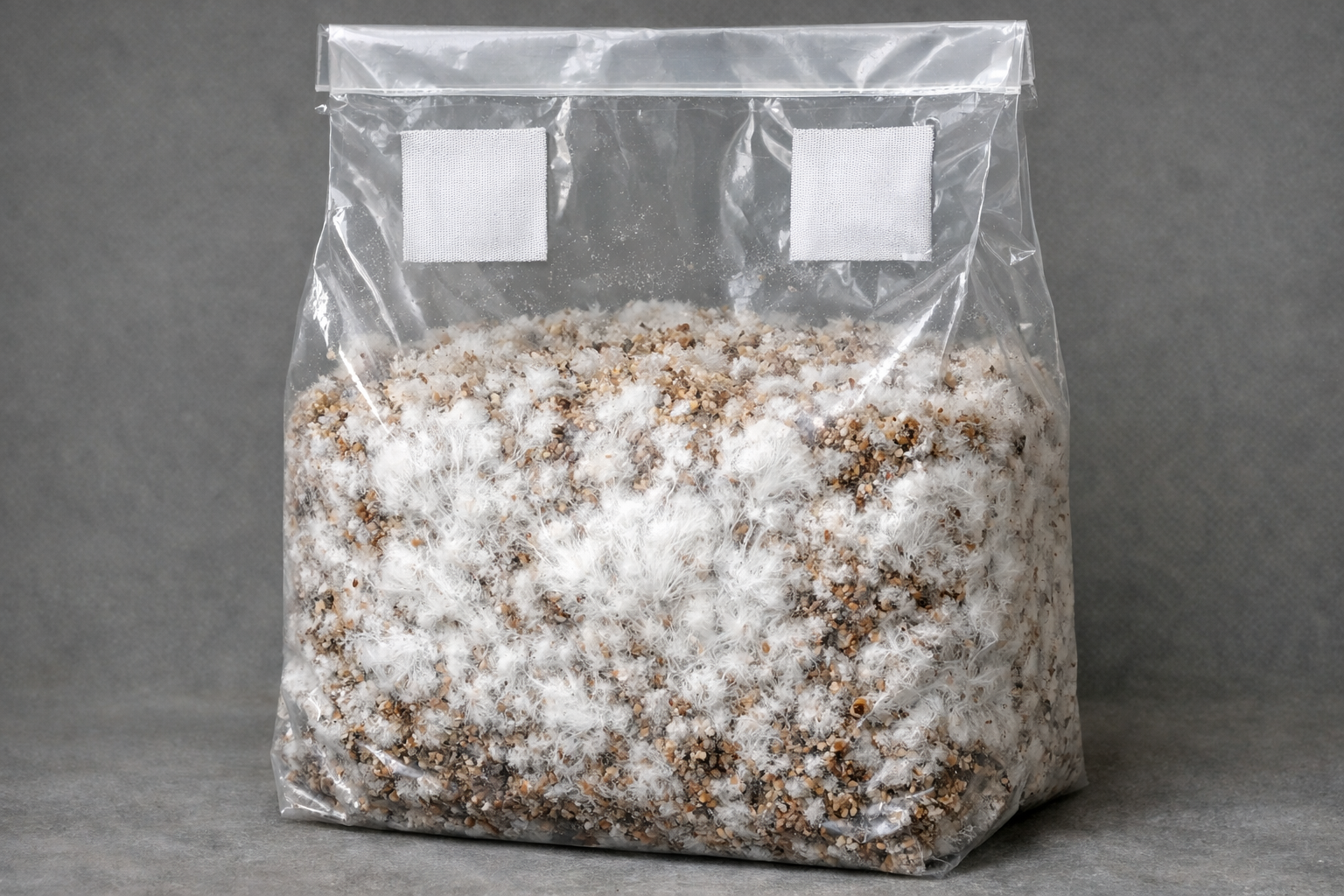
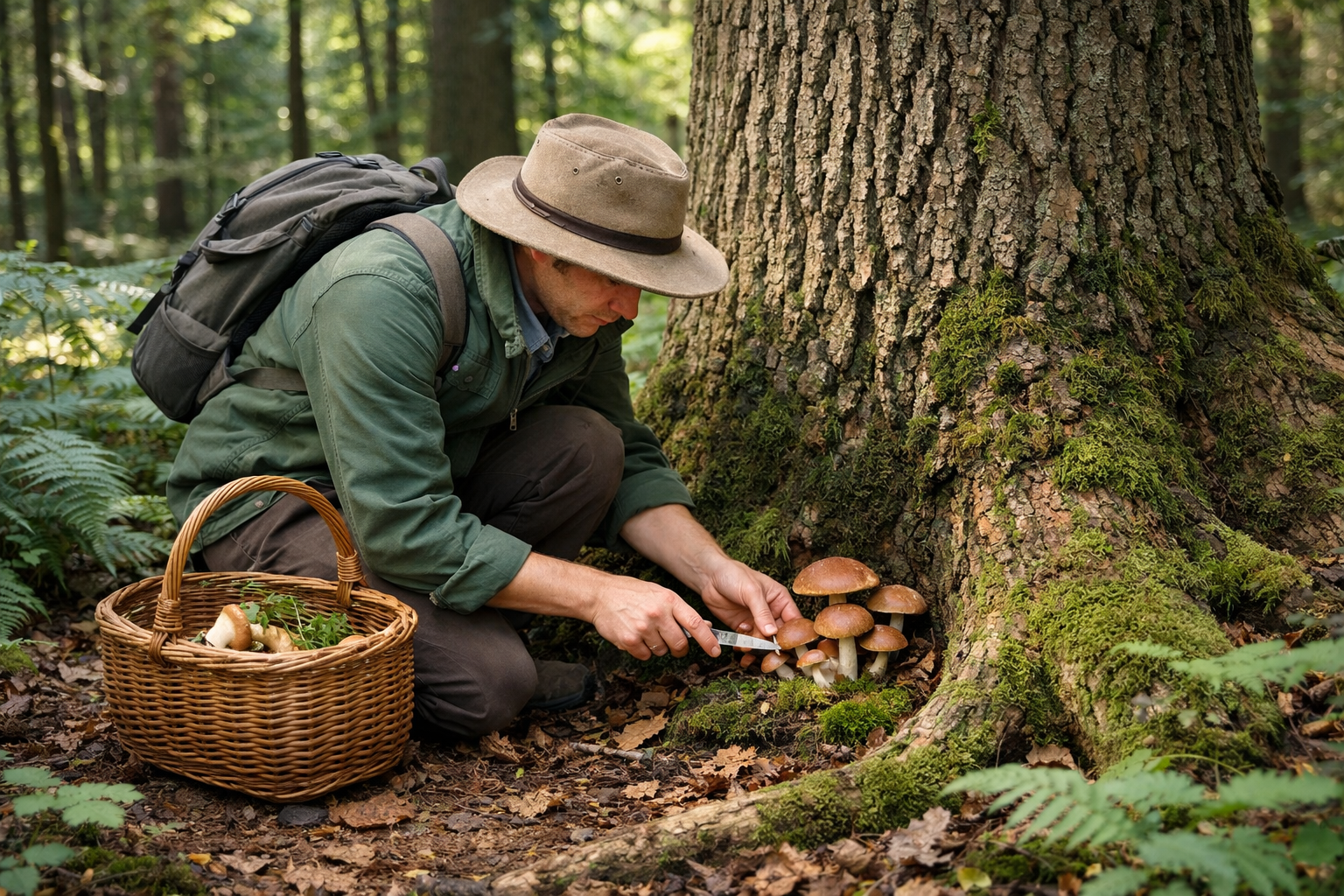
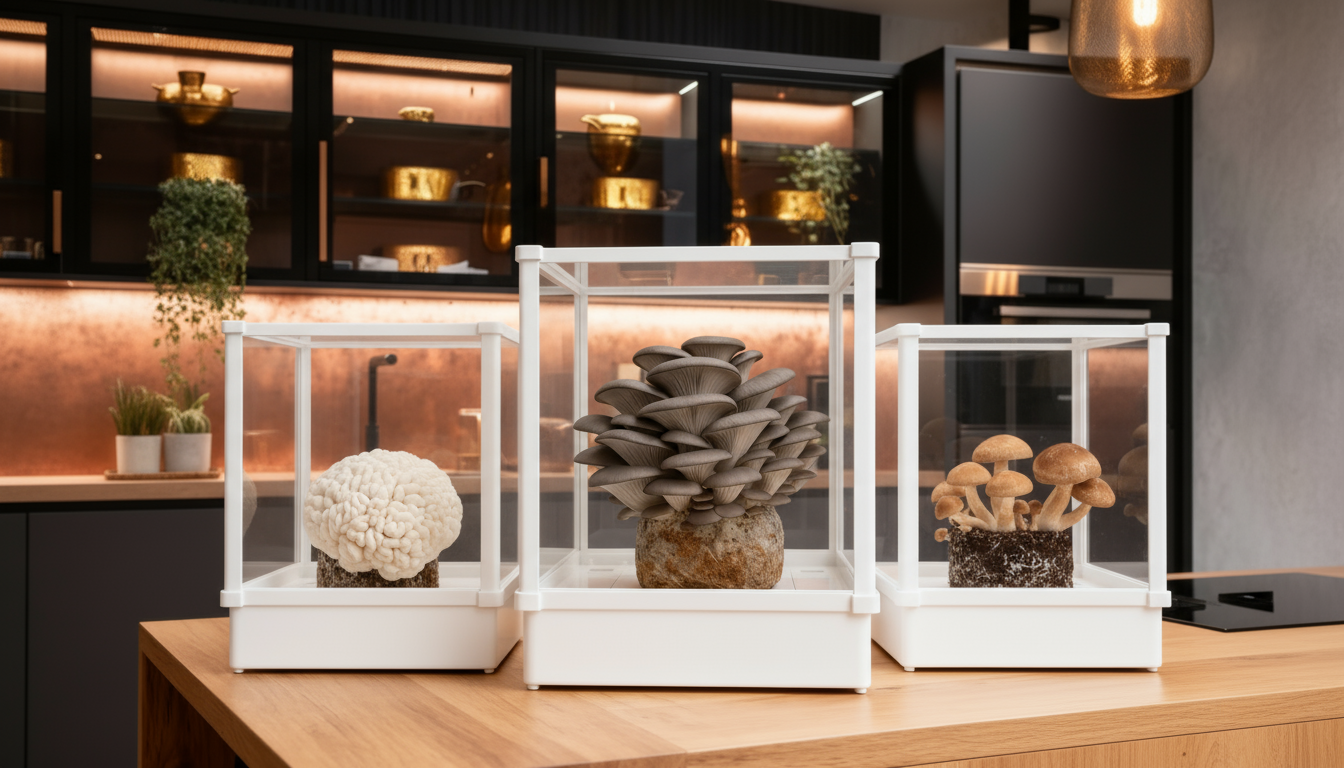
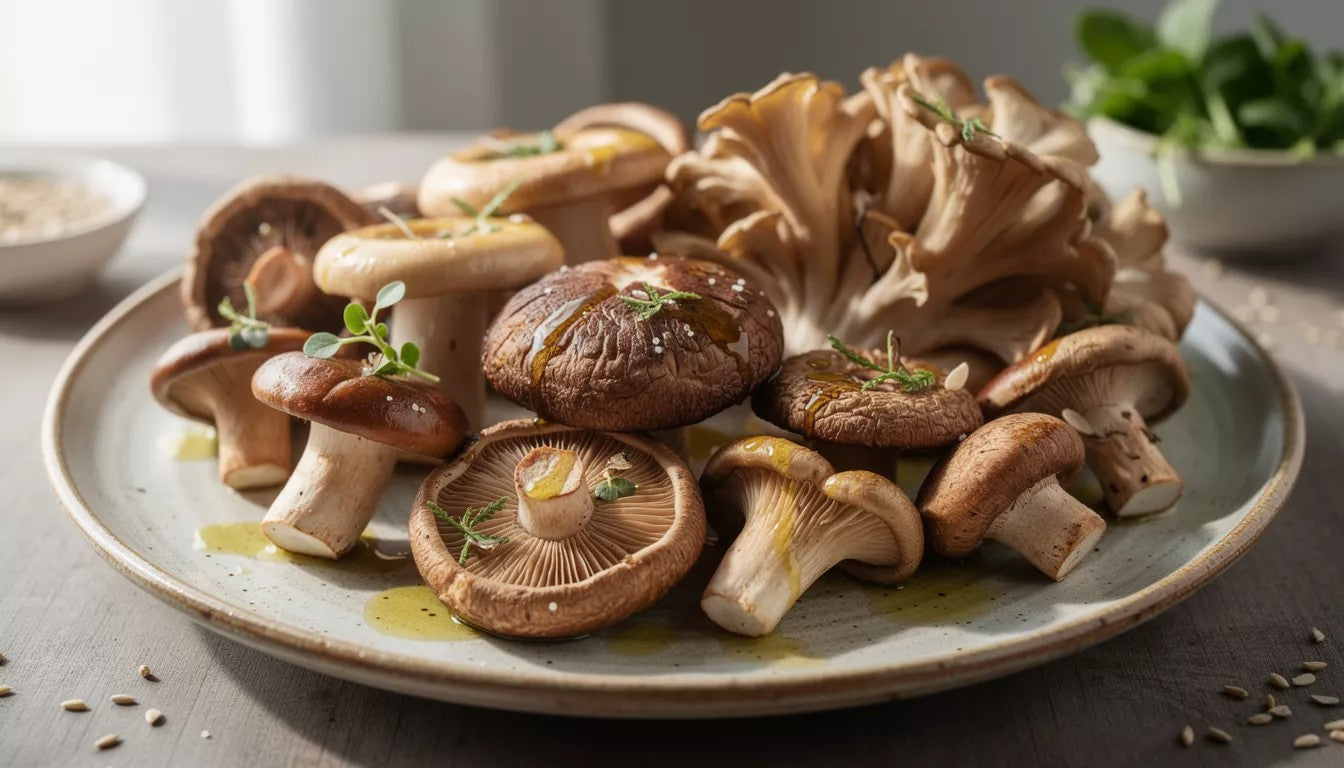
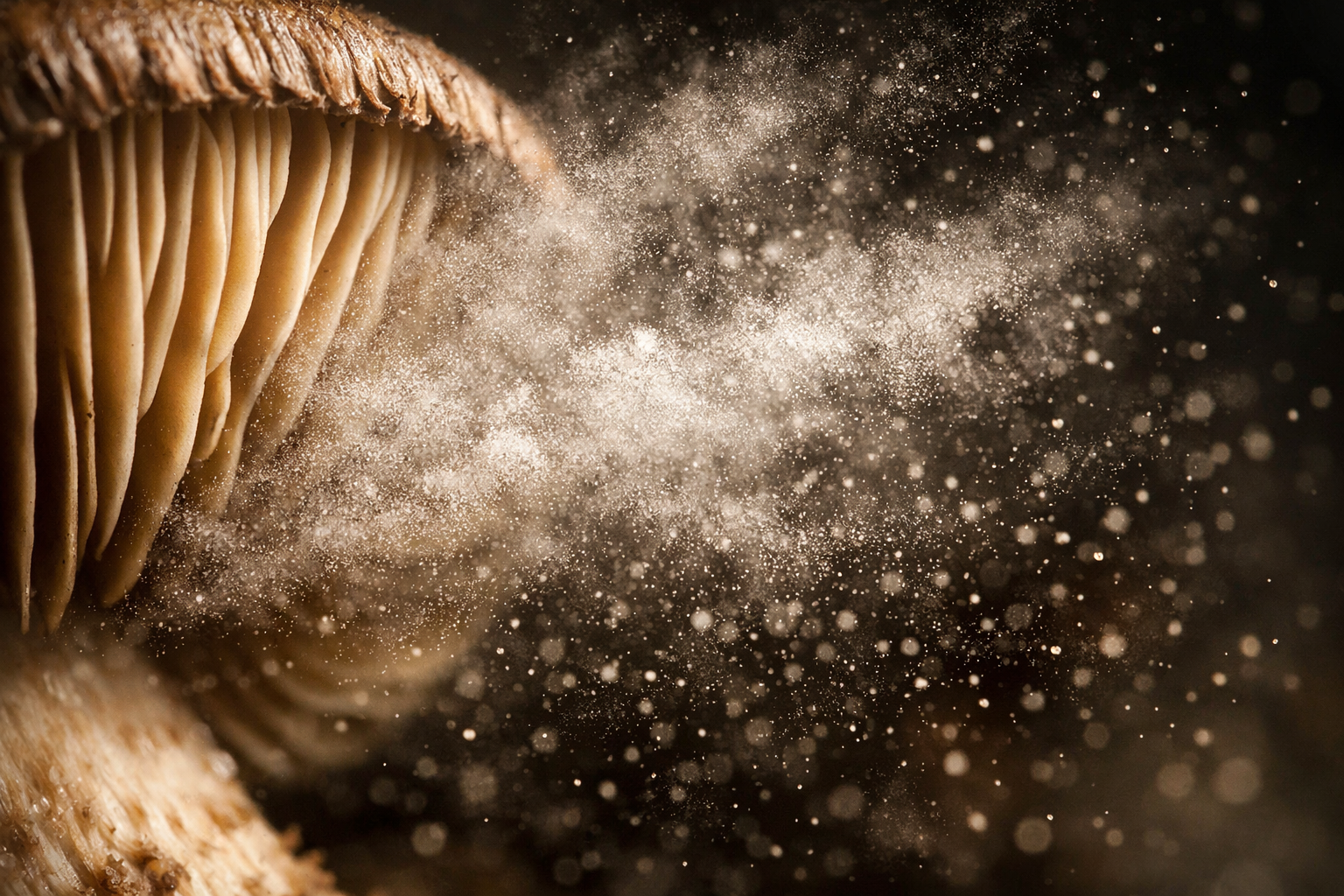
Share:
Grow Kits for Psychedelic Mushroom
Black Trumpet Mushroom: The Complete Guide to This Extraordinary Culinary Delicacy